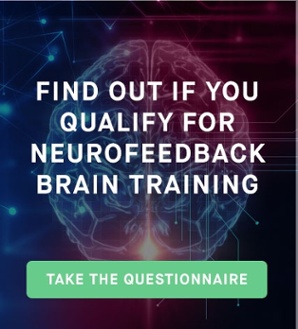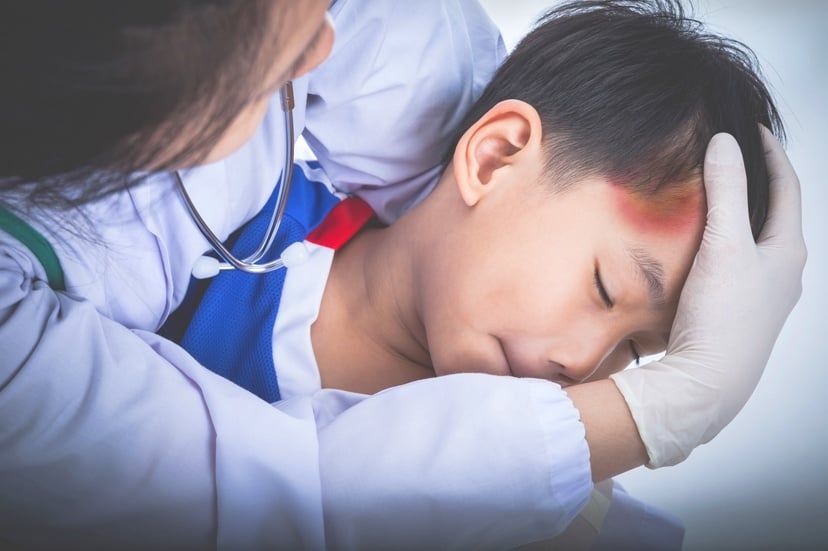
When someone suffers a head injury, there are both short- and long-term consequences associated with the trauma. Confusion, memory loss, sleep issues—these are all symptoms and side effects of concussions, or traumatic brain injuries (TBIs). Many people also face anxiety and depression in their injury’s aftermath.
Yes, research indicates a head injury could lead to depression.
Discussions in the media in recent years have even detailed a connection between concussions and suicide.
A study in the peer-reviewed Journal of the American Medical Association shared by the JAMA NetworkTM in 2010 evaluated 559 “consecutively hospitalized adults with complicated mild to severe TBI” from June 2001 to March 2005. More than half of these patients—53.1 percent, or 297—showed signs of major depressive disorder (MDD) at some point within the first year of their injury. There are several factors the researchers considered following this discovery, including when the patient sustained the TBI, “history of MDD prior to injury (but not at the time of injury),” and any alcohol dependence present. As opposed to patients who didn’t experience any signs of MDD, patients who did “reported lower quality of life.”
The analysis concludes that while more research should be conducted: “Major depressive disorder (MDD) may be the most common and disabling psychiatric condition in individuals with TBI. Poorer cognitive functioning, aggression and anxiety, greater functional disability, poorer recovery, higher rates of suicide attempts, and increased health care costs are thought to be associated with MDD after TBI.”
The Washington Post published an article in February 2016 that builds on the study’s last point. Specifically, it focused on the “terrifying” connection between concussions and suicide due to development of depression. The article references a study from the Canadian Medical Association Journal, which assessed “a health database of more than 235,000 people” who sought medical treatment for mild concussions.
“The researchers matched those whose official death certificates listed suicide with their medical history over a 20-year period. They found a suicide rate of 31 deaths per 100,000 patients—three times the population norm. The mean time between a mild concussion and suicide was 5.7 years, and each additional concussion raised suicide risk," shares the article.
A 2017 report by the Journal of Neurotrauma, and published by the U.S. National Library of Science, echoes the aforementioned findings.
The report, titled “Treatment for Depression after Traumatic Brain Injury: A Systematic Review,” states that TBIs attribute to long-term, neurobehavioral changes, such as “difficulty remaining employed, maintaining social relationships, and fulfilling many other social roles.” Additionally, “the cognitive sequelae that contribute to these limitations, debilitating psychiatric problems such as depression, anxiety, and alcohol abuse are common among persons with TBI.”
Even those with mild TBIs are at risk of developing MDD, and consequently, also at risk of becoming suicidal, it states:
“There is also an increased risk of suicide subsequent to TBI, with one study noting that 10% reported suicidal ideation at 1 year post-TBI, and 15% attempted suicide by 5 years post-injury." The report concludes: “A combination of multidisciplinary brain injury rehabilitation plus psychiatric and psychological treatment modalities may offer the greatest potential for maximizing outcomes in the majority of people with TBI and depression.”
If you believe you or a loved one suffering from a concussion, we urge you to contact a trusted health care provider immediately for an evaluation.
The Northport Wellness Center has a well established Concussion Recovery program to help our patients heal from head trauma. After carefully evaluating a patient’s conditions, our team of experienced practitioners creates a customized treatment plan, which can include hyperbaric oxygen therapy, nutritional counseling, chiropractic care, neurofeedback and other therapies to help repair and retrain the brain and improve quality of life, physically and emotionally.













